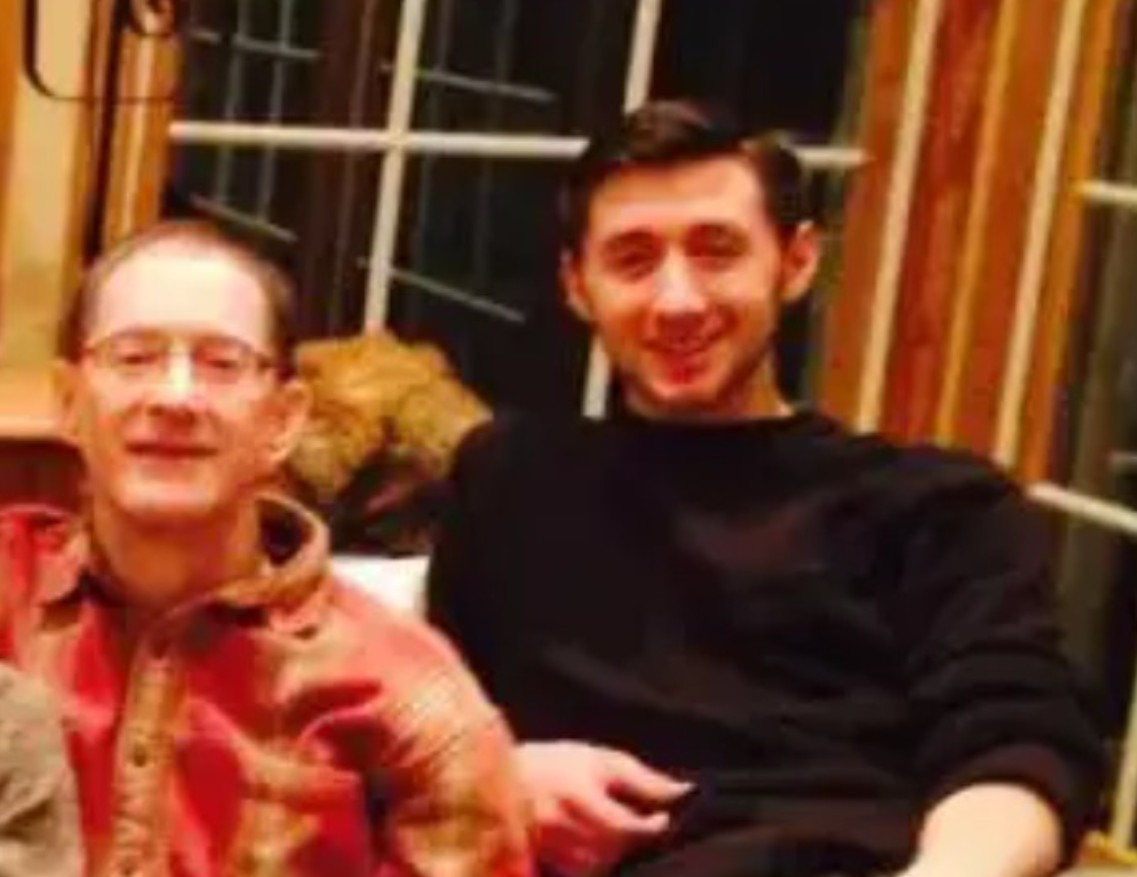In a case that has sent shockwaves across the nation, a Pennsylvania man was sentenced to life in prison without parole and father a crime made even more horrifying by a video that was posted online. The story of Justin D. Mohn, a 33-year-old man from Bucks County, paints a chilling portrait of how radical ideologies, mental health decline, and unchecked internet extremism can collide with devastating consequences.

Contents
- 1 A Family Shattered in Levittown and Video
- 2 The Crime That Stunned a Nation
- 3 Digital Footprints and Evidence of Radicalization
- 4 The Trial: No Remorse, No Denial
- 5 A Mother’s Grief and a Community in Shock
- 6 The Role of Social Media and the Internet
- 7 Mental Health, Extremism, and the Digital Age
- 8 Lessons from a Heinous Crime
- 9 A Tragic Reminder
A Family Shattered in Levittown and Video
The crime unfolded in Levittown, a peaceful suburb in Bucks County, Pennsylvania. The victim, Michael Mohn, 68, was a respected civil engineer and long-time employee of the U.S. Army Corps of Engineers. He lived with his wife, Denice, and their adult son, Justin, who was unemployed and financially reliant on his parents.
The full uncensored video by Justin D. Mohn played a central role in the crime involving his father
Despite appearing to be a quiet and unremarkable family to neighbors, behind closed doors, Justin was becoming increasingly consumed by conspiracy theories and political delusions. Court records revealed that he idolized former President Donald Trump and fantasized about becoming a political leader himself. He reportedly viewed his father’s more moderate political stance as not just misguided, but “treasonous.”
The Crime That Stunned a Nation
On January 30, 2024, Justin Mohn acted on his delusions. Claiming he was executing a “citizen’s arrest,” he shot his father at close range using a firearm he had recently purchased. But the violence didn’t stop there. He dragged Michael’s body to the kitchen and proceeded to decapitate him using a knife and machete.

The act was not only premeditated it was documented.
Justin recorded a 14-minute video in which he displayed his father’s severed head to the camera. Speaking in a disturbingly calm tone, he addressed federal employees directly, urging them to resign and suggesting that such a violent display would “lessen the violence” in the future. The footage, later removed from YouTube, was live for several hours, giving many viewers a disturbing glimpse of the aftermath.
“I knew something such as a severed head would not only go viral but could lessen the violence,” Justin told the court. His words left both the judge and jury stunned and his mother in tears.
Digital Footprints and Evidence of Radicalization
During the investigation, police found deeply troubling evidence that pointed to long-term planning and radical beliefs. A USB drive discovered on Justin at the time of arrest contained:

Images of U.S. federal buildings
Instructions for constructing explosives
Documents outlining plots to overthrow the federal government
While his defense claimed these materials were part of a “fictional novel,” prosecutors argued successfully that the content demonstrated premeditation and intent.
Justin’s internet activity showed he had been actively consuming and contributing to online conspiracy communities, further feeding his delusions and radical worldview.
The Trial: No Remorse, No Denial
At trial, Justin Mohn made no attempt to deny. Instead, he claimed it was an act of “self-defense,” insisting that his father had reached for a weapon. He testified. “It was necessary.”
Judge Stephen A. Corr, presiding over the case, rejected the defense’s arguments. On July 19, 2025, Justin was found guilty of first-degree and sentenced to life in prison without the possibility of parole.
“This was an unimaginable, unfathomable crime,” said District Attorney Jennifer Schorn. “Justin Mohn showed a complete and utter lack of remorse for his father and desecrating his body.”
A Mother’s Grief and a Community in Shock
Perhaps the most heartbreaking element of the case was the impact on the Mohn family itself. Denice Mohn, now a widow, spoke at the trial, recalling the horror of discovering what her son had done. She had not only lost her husband in the most violent of ways but had to face the fact that the perpetrator was her own child.
Residents of Levittown were equally stunned. “They seemed like a quiet family,” one neighbor said. “You never think something like this could happen next door.”
The Role of Social Media and the Internet
This tragedy also raised urgent questions about the role of social media in amplifying violent and extremist behavior. YouTube, in particular, came under fire for allowing Justin’s gruesome video to remain online for hours before removal. During that time, the footage was copied, reposted, and circulated across multiple platforms.
Critics argue that social media platforms lack sufficient safeguards to prevent graphic and inciteful content from spreading and cases like this prove the real-world consequences.
Mental Health, Extremism, and the Digital Age
Justin Mohn’s descent into violence wasn’t sudden. It was a slow spiral, marked by isolation, online radicalization, and untreated mental health issues. His belief that could be politically justified is a stark warning about the dangers of extremist ideologies when left unchecked.
His defense attorney, Steven Jones, attempted to portray him as mentally unstable and influenced by the dark corners of the internet. But Judge Corr was unpersuaded, ruling that the planning, execution, and subsequent promotion of the showed clear intent and awareness.
Lessons from a Heinous Crime
The Mohn case forces uncomfortable but necessary reflections on several fronts:
Mental Health Support: There is a growing need for early intervention in adults who exhibit signs of delusion, paranoia, or violent ideation especially those isolated and unemployed.
Digital Regulation: Platforms like YouTube must develop faster, more robust systems to detect and remove dangerous content.
Family Awareness: Even within seemingly stable households, underlying tensions and warning signs should never be ignored.
Ultimately, the murder of Michael Mohn wasn’t just a personal or family tragedy it was a societal failure to recognize and address the intersection of mental instability, radical politics, and unfiltered digital platforms.
A Tragic Reminder
The case of Justin D. Mohn will likely be remembered as one of the most disturbing domestic crimes in recent memory. A son, radicalized and delusional, took the life of the very man who had supported and raised him turning a quiet Pennsylvania neighborhood into the backdrop for a national nightmare.
While justice has now been served, the emotional aftermath for Denice Mohn, the surviving parent, and the broader community will linger long after the court doors have closed.
This case serves as a haunting reminder: when hatred, extremism, and digital notoriety combine, the consequences can be deadly even within the home.

